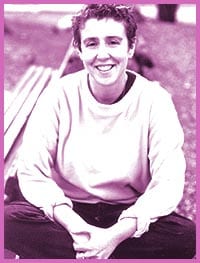How is the relationship between police and gay and lesbian people in Toronto?
Heading into Tue, Oct 15 elections for the Lesbian Gay Bi And Trans Community Police Consultative Committee, feelings are mixed about how much progress has been made and what needs to be done.
Formed in the spring of 2001, the committee hasn’t tackled many of its core issues and Nicki Casseres, the co-chair representing the community, is stepping down. (The co-chair representing the cops, Staff Supt Emery Gilbert, is keeping his position.)
“I feel that we’ve touched on a few issues,” says Casseres. “With the work of the committee, there are things that will happen immediately and things that will take a long time.”
Though it’s been around for a year and a half, the committee hasn’t established much of a public profile.
“I think they’re still in the early stages, so they haven’t done much,” says James Dubro, co-chair of the neighbourhood-oriented 52 Division Community Police Liaison Committee. “But they have achieved some sort of relationship with the police and the chief.”
The committee has helped set up regular meetings between gay bar owners and police over the laws on overcrowding and booze in the bathrooms. Shying away from in-your-face issues like the police arrests of nudists in the 2002 Pride parade, the 2000 raid of the Pussy Palace women’s bathhouse and park cruising, the committee has focussed on education campaigns aimed at opening communication lines between police and queer folks.
Its first campaign, focussing on sexual assault, featured a brochure and posters in public washrooms, as well as officers speaking to members of some gay organizations. The committee is hoping to produce similar campaigns, working with the police’s Domestic Assault Unit and the Hate Crimes Unit.
Coming up this fall, the committee will be heading up to Aylmer – where all police in Ontario are trained – to talk to the new recruits.
Doug Ord has been acting as part-time police liaison since June, when Judy Nosworthy, Toronto’s first lesbian, gay and trans liaison officer, was promoted out of the position. Ord says the trip to Aylmer will be an important step in helping new recruits understand gay people.
“I think its good for the officers to see them,” he says. “Many of the small town men and women have never seen a gay or transgender person.”
Dubro says such exercises don’t sound like much, but can help things in the long run.
“Should something happen again such as the bathhouse raids [which happened in 1981], the police will be more accountable,” he says. “You can’t keep your eyes off police. [They have] a military mindset. It’s important for them to be exposed to the community, otherwise they would be much less accountable.”
Casseres says the committee has been favouring long-term systemic change. At the top of the list, though no start date has been set, is a course directed at police managers to show them how to make their work environment safe for queer officers. Right now, only front line officers get diversity training.
“We want to create an atmosphere where there are more gay officers and then better policing of the community,” says Casseres. “Officers have been pretty keen on it. They’ve been looking at IBM and other larger companies to see how they handle management diversity training.”
Ord, who is unsure when he will be replaced with a permanent full-time liaison officer, says he’s pleased with what the committee has achieved.
“Some good things have been happening in the community,” says Ord. “The community isn’t afraid to call us. That’s different from other communities I’ve worked with.”
Still Ord says the committee needs to work on its relationship with the community.
Casseres says its hard to get people interested – nominations for the board, which close Fri, Oct 5, have been slow.
“We’ve called people and e-mailed them, but we need to use other venues better including flyers and the media,” she says.
Dubro says it’s important for the police to have a watchdog. There have been ongoing controversies on who is allowed to be on police committees. Membership usually requires a criminal record check, which can disqualify many people who have policing issues – like sex workers and park sex cruisers. People who are charged with an offence while sitting on the committee must disclose it or be kicked off the committee.
“It is a police-driven process,” says Dubro, “but the alternate is no communication and conflict all the time….. It’s better to be talking to these guys than not talking to these guys.”
Nominations for Toronto’s LGBT Community Police Consultative Committee close Fri, Oct 5 for elections at the 519 Community Centre on Tue, Oct 15 at 7pm. For more information, call (416) 392-6878, ext 350 or e-mail glbtpoliceliaison@yahoo.com.

 Why you can trust Xtra
Why you can trust Xtra


